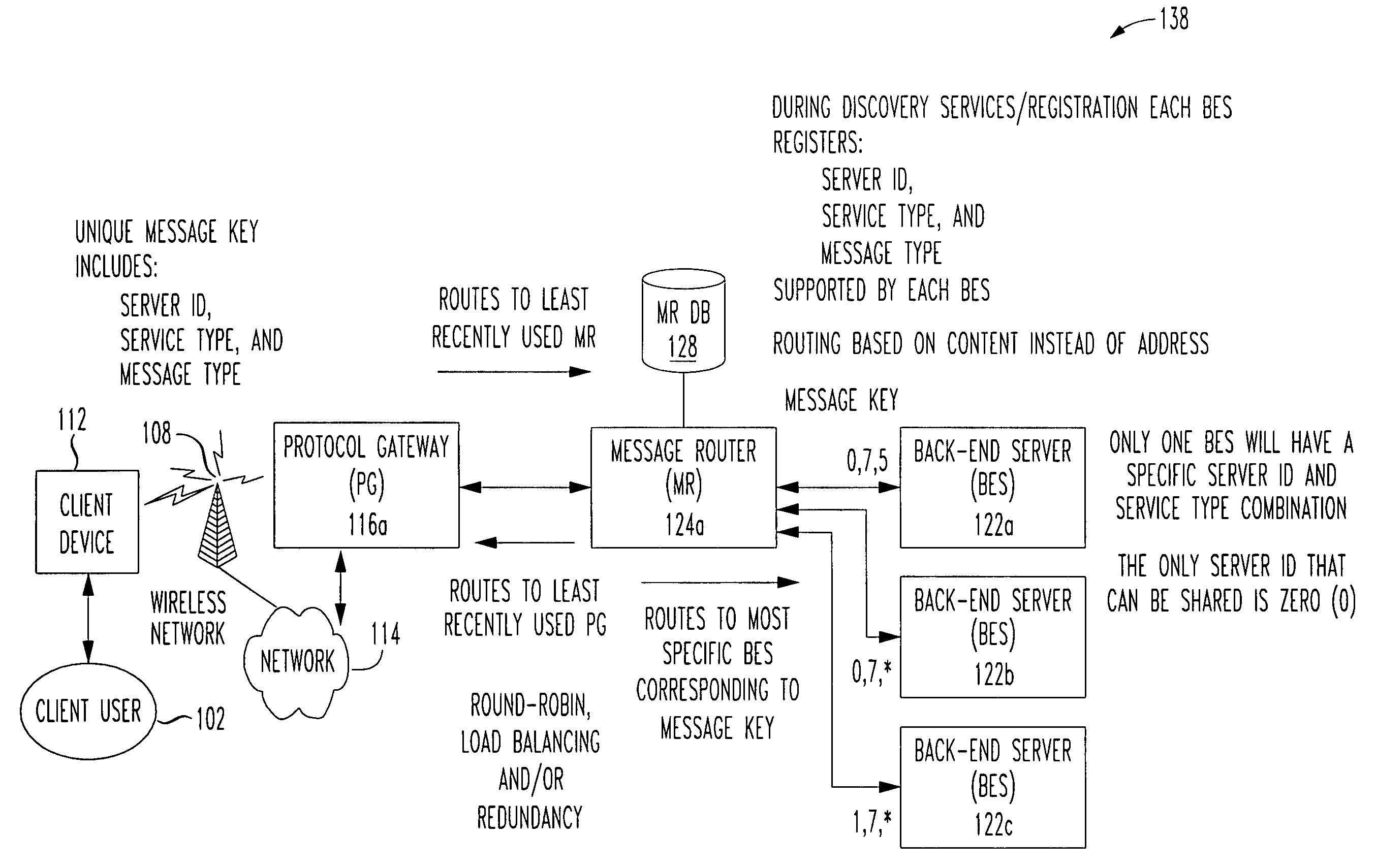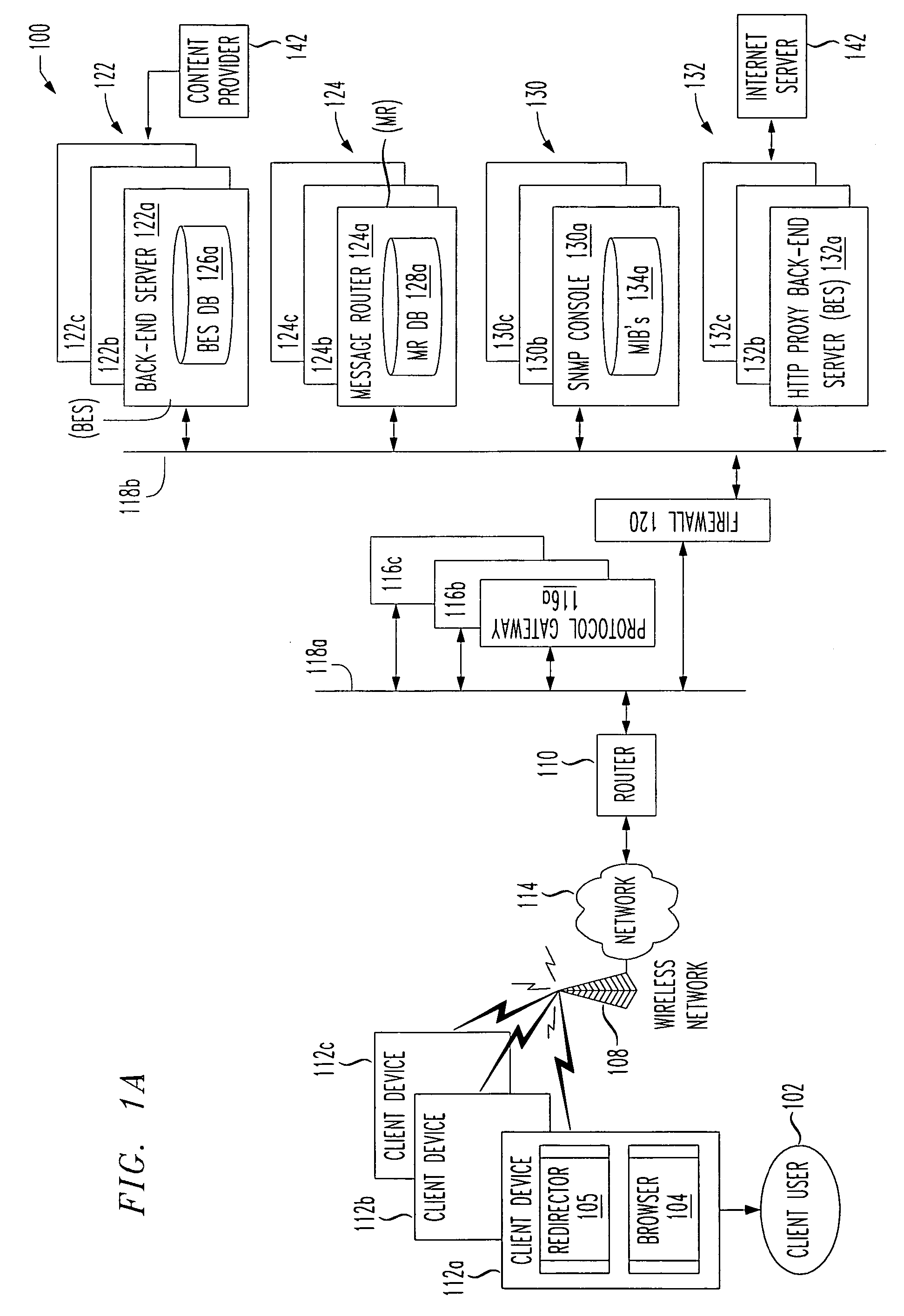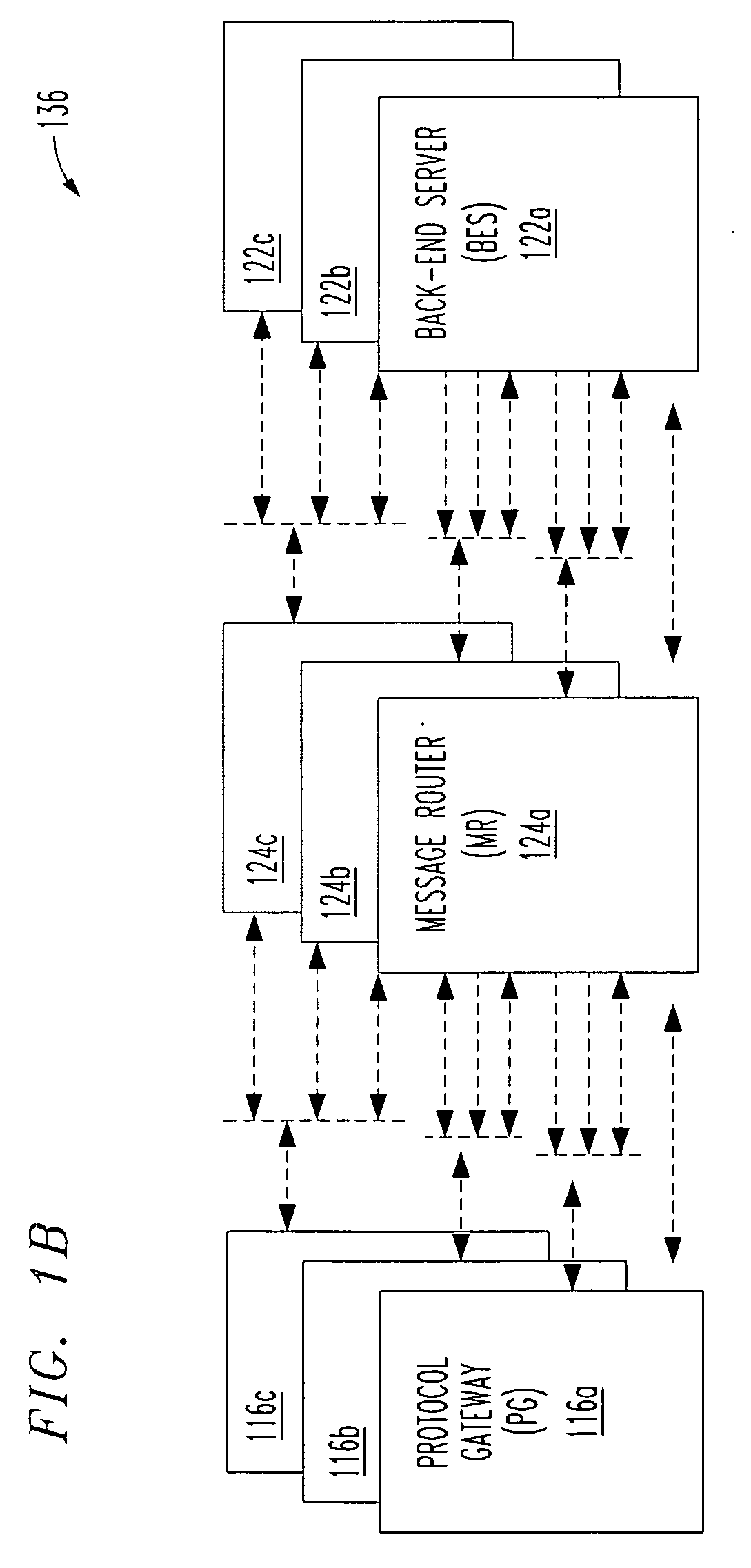[0015] The present invention features a
system, method and
computer program product that in an exemplary embodiment is operative to provide a multi-network transport
programming interface that can enable client /
server applications to be written easily, where such applications can allow client applications running on client devices to communicate messages with server applications across one or more
wireless and wire-line networks. Moreover, the present invention in an exemplary embodiment offers features for communicating such messages over
wireless networks efficiently, without requiring significant bandwidth, a valuable resource in wireless networks.
[0018] Advantageously, the present invention, in an exemplary embodiment, features a highly optimized semi-reliable
data transport protocol, simple network
transport layer (SNTL). The transport protocol implementation, in an exemplary embodiment, can optimize the
over the air communication by using a connectionless send and receive mechanism. In addition, or alternatively, in an exemplary embodiment, the present invention can provide multiple compression mechanisms to reduce the amount of information that needs to be sent
over the air. In an exemplary embodiment, in order to provide a reliable mechanism over a connectionless environment, the transport protocol implementation can provide for message
segmentation and reassembly, message retries, or message ACK and NACK service for each supported
wireless network. In an exemplary embodiment, message segments that are not acknowledged by the peer protocol layer within the configurable
time frame can be retried automatically by the transport protocol implementation. In order to facilitate the request and provision of services, the interfaces between
layers can be clearly defined for peer-to-
peer communication between corresponding
layers of both sides of a connection. That is, the
protocol stack on each side (client and server) can be symmetrical. This can allow two machines to specify how they communicate with one another on a level-to-level basis, rather than having to negotiate one giant protocol for the entire network. This means that logical communications can occur at the peer protocol layer. On the
client side for wireless communications this can be called a peer wireless protocol layer. In an exemplary embodiment, the client or server applications do not need to be concerned with segmenting the message and performing message retries. In addition to performing message retries, the transport protocol implementation can support message duplication detection. In an exemplary embodiment, to support this reliable mechanism over a connectionless environment, the transport protocol implementation can add only four to six bytes to each application message. In an exemplary embodiment, SNTL can include a novel and non-obvious
hybrid protocol including many of the advantages of TCP but connectionless as is UDP. Further, in an exemplary embodiment, there can be less overhead than is required by conventional TCP.
[0019] The present invention, in an exemplary embodiment, can also use a
wireless connectivity middle layer gateway, which can be developed using a wireless
software development environment. The environment can insulate a developer from the complexities of the underlying details related to devices and protocols.
[0021] Advantageously, wireless technologies and client devices can remain transparent to the
data source through the use of client and server application
programming interfaces (APIs) that can support multiple operating environments including, for example, Palm OS, RIM, Windows 95, 98, 2000, CE and NT,
UNIX, Linux, and other variations of
UNIX, etc. These well-defined APIs can use a set of portable class libraries to aid in
rapid application development. Access to the intelligent messaging network of the present invention can be via wireless client devices or via a dial-up or
leased line or other
wireline connection coupled via, e.g., an
Internet service provider (ISP), a
network service provider (NSP), a
private network, or a virtual
private network (VPN). That is, enterprise support, can be provided for and to, wireless clients and clients that need to access the intelligent messaging network of the present invention via a wired connection or dial-up line. This latter group of clients can be called Internet proxy clients, i.e., clients that can use a
proxy server for access to
the Internet. As client devices and
wireless network technologies evolve, this
system can ensure that data solutions are supported.
 Login to View More
Login to View More  Login to View More
Login to View More 


